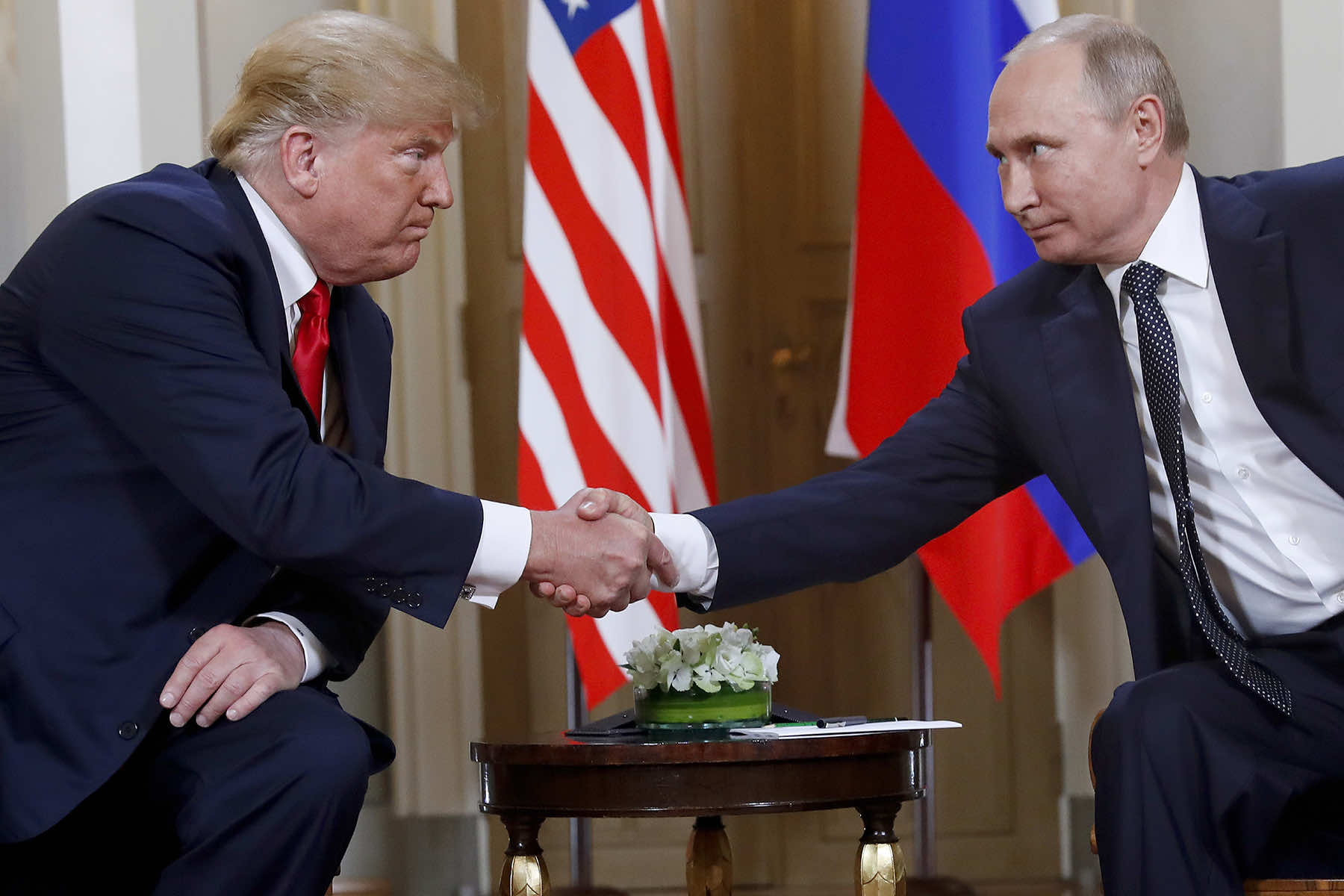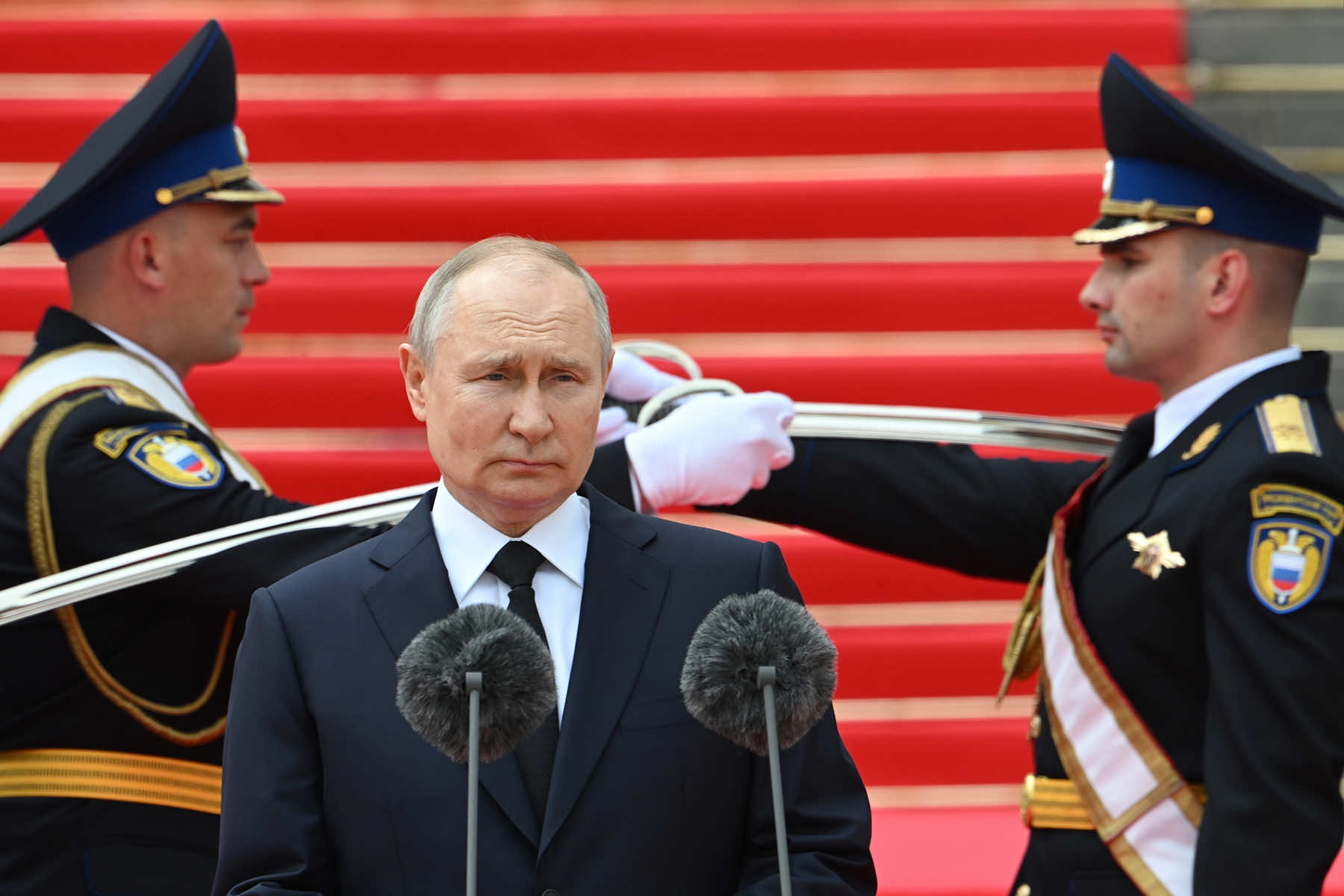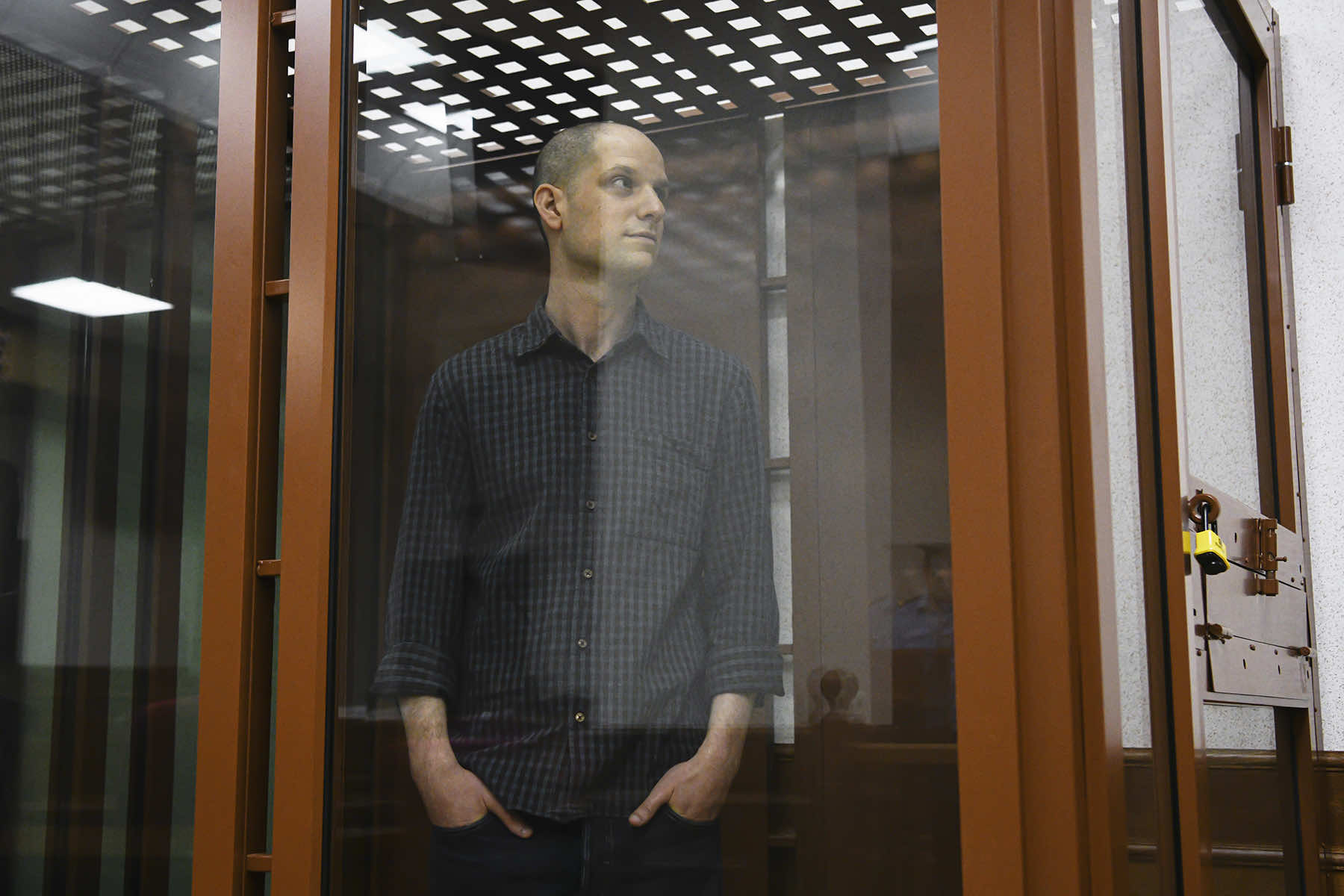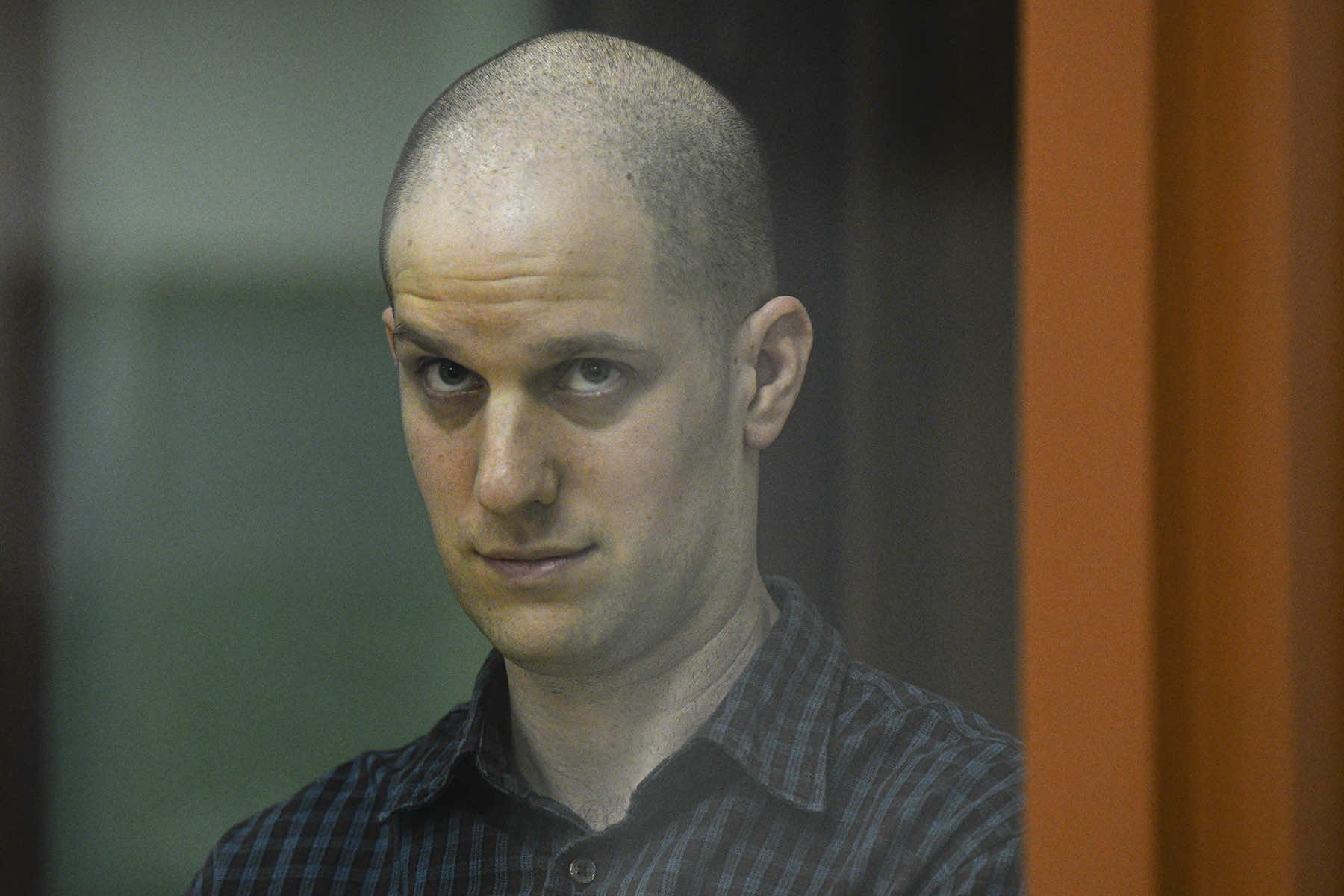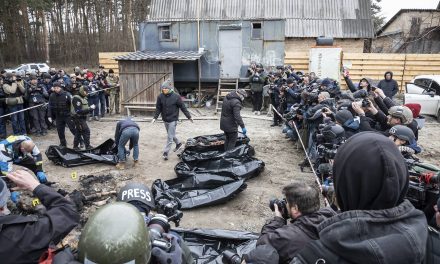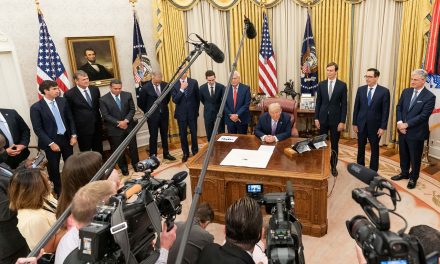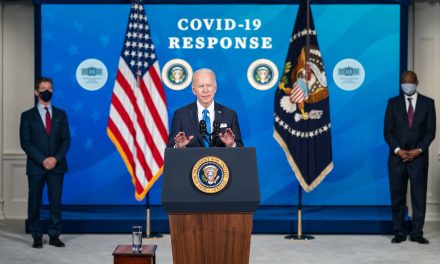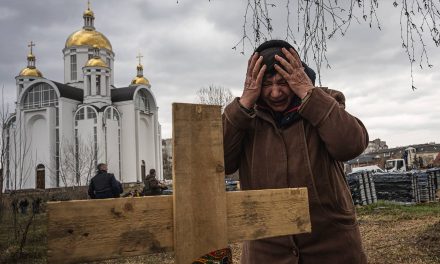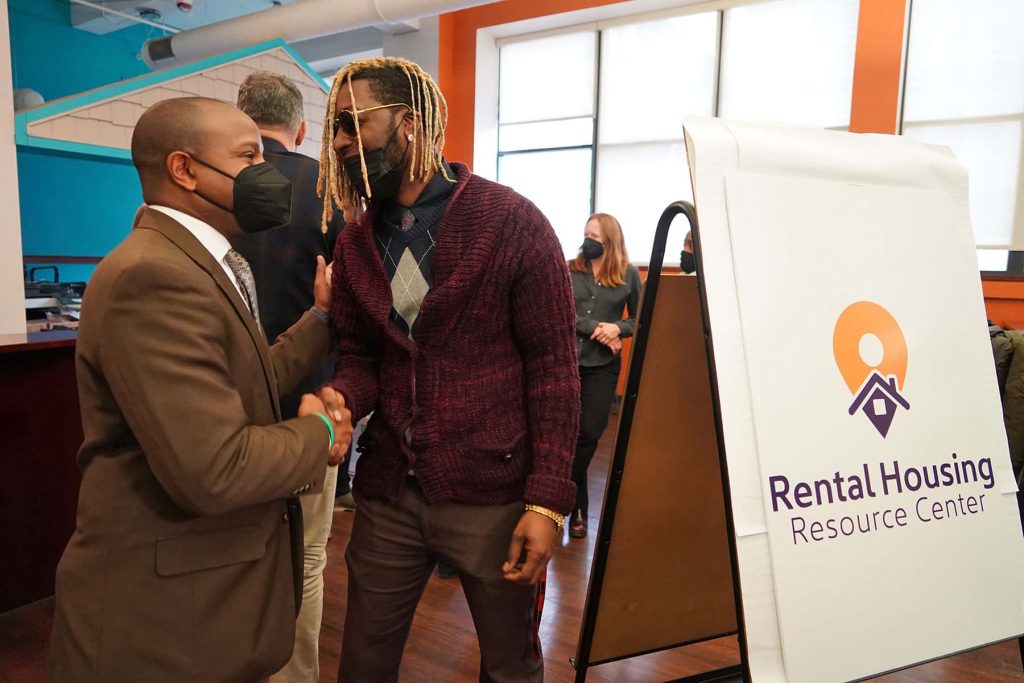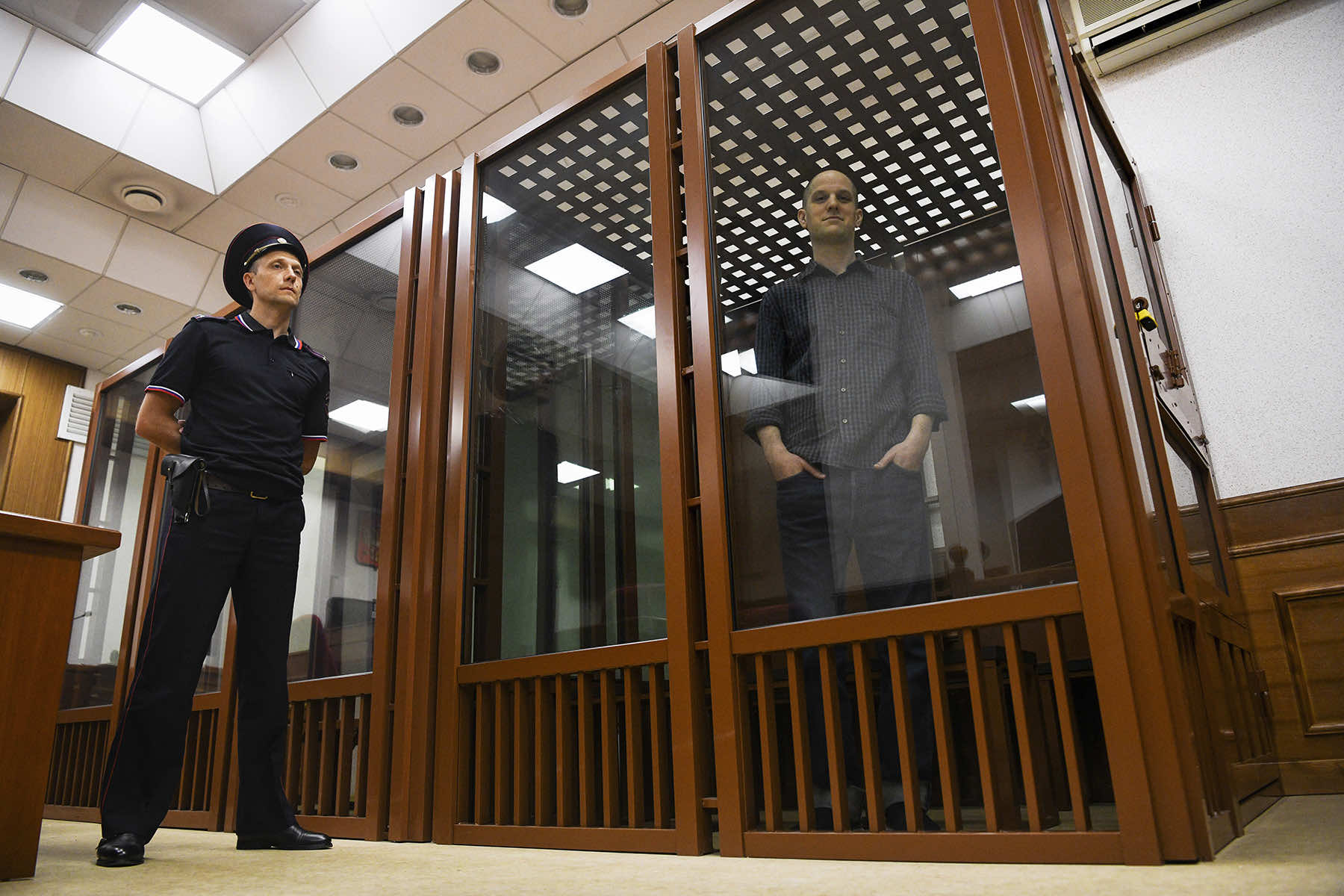
Trump has been focused on 32-year-old “Wall Street Journal” reporter Evan Gershkovich, who was arrested by Russian officers in March 2023 and is currently on trial for the trumped-up charge of espionage.
The State Department considers him “wrongfully detained,” a rare designation indicating that the person is being held by a hostile government as a bargaining chip. That designation means the U.S. government will do all it can to secure his release.
At least three times now, Trump has interfered with those negotiations by vowing that Russian dictator Vladimir Putin will release Gershkovich for him and him alone. He said it in the June 27 CNN debacle, where he also made a big deal out of the idea that Putin will do it as a favor, without an exchange of money.
He said something else that night in his slurry of words that jumped out. Somewhere in his discussion of Putin’s invasion of eastern Ukraine in February 2022, Trump said: “Putin saw that, he said, you know what, I think we’re going to go in and maybe take my — this was his dream. I talked to him about it, his dream.”
Special Counsel Robert Mueller’s 2019 report on Russian interference in the 2016 presidential election explained that Paul Manafort, Trump’s campaign manager and then conduit to Russian operatives, in summer 2016 “discussed a plan to resolve the ongoing political problems in Ukraine by creating an autonomous republic in its more industrialized eastern region of Donbas, and having [Viktor] Yanukovych, the Ukrainian President ousted in 2014, elected to head that republic.”
Manafort had helped to get the pro-Russian oligarch Yanukovych into office, and when Yanukovych fled to Russia after the Ukrainian people threw him out, Manafort was left unemployed and in debt to other oligarchs. When he went to work for Trump, for free, he promptly wrote to his partner Konstantin Kilimnik, whom the Republican-dominated Senate Intelligence Committee identified in 2020 as a Russian operative, asking how “we” could use the appointment “to get whole,” and made sure that the Russian oligarch to whom he owed the most money knew about his close connection with the Trump campaign (p. 135).
The Mueller Report continued: “That plan, Manafort later acknowledged, constituted a ‘backdoor’ means for Russia to control eastern Ukraine” (p. 140). The region that Putin wanted was the country’s industrial heartland. He was offering a “peace” plan that carved off much of Ukraine and made it subservient to him.
This was the dead opposite of U.S. policy for a free and united Ukraine, and there was no chance that former secretary of state Hillary Clinton, who was running for the presidency against Trump, would stand for it.
But if only Trump were elected. And, in November 2016, he was.
According to the Republican-dominated Senate Intelligence Committee, Manafort’s partner and Russian operative Kilimnick wrote that “[a]ll that is required to start the process is a very minor ‘wink’ (or slight push) from D[onald] T[rump] saying ‘he wants peace in Ukraine and Donbass back in Ukraine’ and a decision to be a ‘special representative’ and manage this process.”
Following that, Kilimnik suggested that Manafort ‘could start the process and within 10 days visit Russia ([Yanukovych] guarantees your reception at the very top level, cutting through all the bullsh*t and getting down to business), Ukraine, and key EU capitals.’ The email also suggested that once then–Ukrainian President Petro Poroshenko understood this ‘message’ from the United States, the process ‘will go very fast and DT could have peace in Ukraine basically within a few months after inauguration’” (p. 99).
According to the Senate Intelligence Committee, the men continued to work on what they called the “Mariupol Plan” at least until 2018.
In the July 27 debate, Trump insisted that Putin never would have invaded Ukraine on his watch – although Putin in fact continued his 2014 assault during Trump’s term, and Trump tried to withhold support for Ukraine.
After Russia invaded Ukraine again in 2022, Jim Rutenberg published a terrific and thorough review of this history in the New York Times Magazine, pointing out that Putin’s attack on Ukraine looked different with this history behind it.
Once Biden took office in 2021, the many efforts of the people around Trump, including most obviously Rudy Giuliani, to influence Ukrainian politics through their ties to the White House were over.
“Thirteen months later,” Rutenberg wrote, “Russian tanks crossed the Ukrainian frontier.” Once his troops were there, Putin claimed he had annexed Donetsk, Luhansk, Zaporizhzhia, and Kherson, two of which were specifically named in the Mariupol Plan, and instituted martial law in them, claiming that the people there had voted to join Russia.
Trump claimed that the Ukrainians were losing the war and described how sad it was that their country was being destroyed – without mentioning that it was Putin’s unprovoked war that was doing that damage. He also significantly exaggerated how much money the U.S. has contributed to Ukraine’s defense.
That misrepresentation lines up with Putin’s offer of Friday, June 14, 2024, in a “peace proposal” to Ukraine: Ukraine would give up Donetsk, Luhansk, Zaporizhzhia, and Kherson, including far more territory than Putin’s troops occupy, in exchange for a ceasefire.
Putin said, “If Kyiv and the Western capitals refuse it, as before, then in the end, that’s their…political and moral responsibility for the continuation of bloodshed.” He also demanded an end to all sanctions and that Ukraine abandon its plan to join the North Atlantic Treaty Organization (NATO).
Ukraine president Volodymyr Zelensky rejected the plan and noted that there is no reason to think Putin will stop his land grab once his forces regroup.
So when Trump talked about the 2022 invasion, “Putin saw that, he said, you know what, I think we’re going to go in and maybe take my — this was his dream. I talked to him about it, his dream,” it sounded as if he had been in on the Mariupol Plan.
And when he talked about how the war needed to end, especially in light of Putin’s recent “peace” plan, it sounded as if perhaps he still is.
And he promised, yet again, that he and he alone could get Gershkovich released.
Associated Press, Pablo Martinez (AP), and Sergei Guneyev (via AP)
Letters from an Аmerican is a daily email newsletter written by Heather Cox Richardson, about the history behind today’s politics

